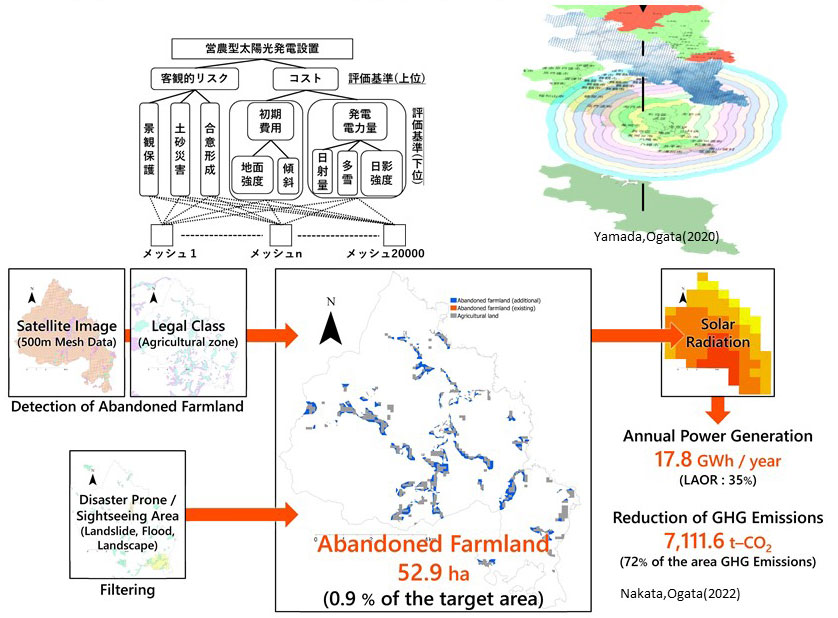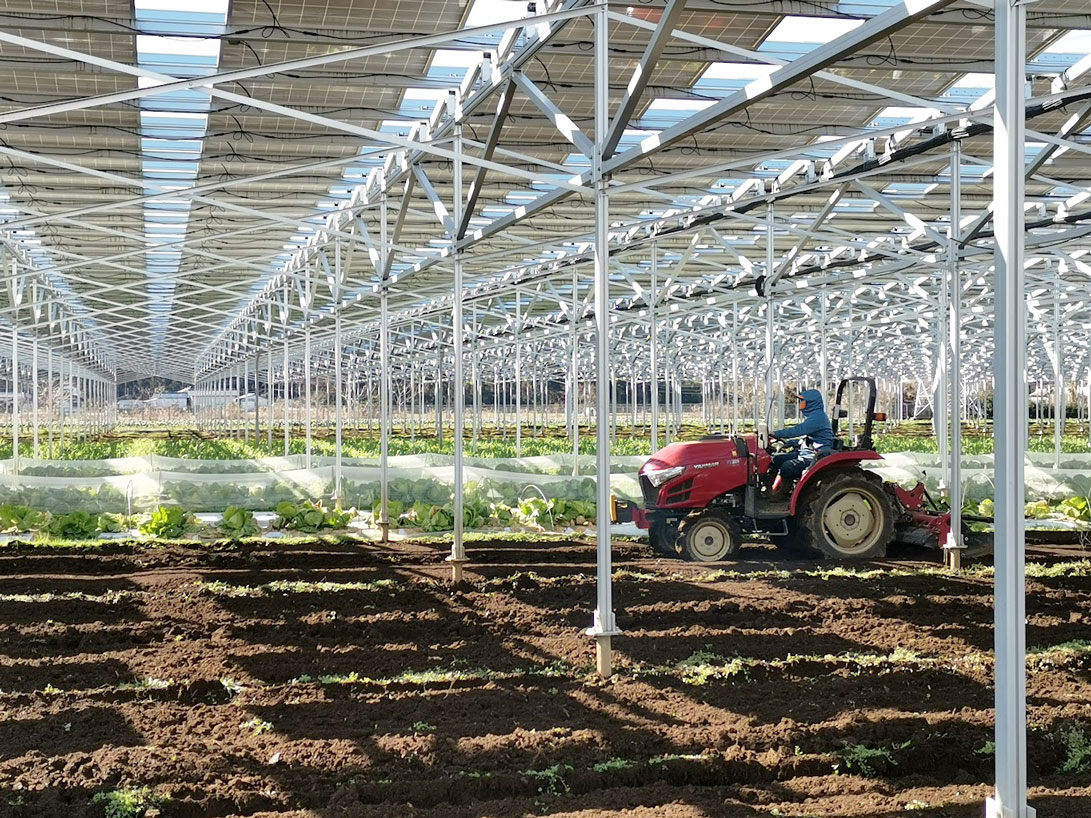Social acceptability of carbon neutral technologies on agricultural land and development of tools to support their introduction
Project Gist
Achieve both local benefits and carbon neutrality through transdisciplinarity.
Keywords
Food self-sufficiency, energy self-sufficiency, idle farmland, trade-offs
Background and Purpose
Agrivoltaics are attracting attention for their contribution to carbon neutrality, economic revitalization, and achievement of the SDGs by utilizing surplus solar radiation to crops to generate electricity and farm in parallel. However, Agrivoltaics challenges the trade-off between food self-sufficiency and energy self-sufficiency through farmland use. Therefore, optimal introduction conditions and business models need to be studied.
Project Achievements
The project aimed to establish partnerships between industry, government, and academia. It successfully implemented networking between these stakeholders to address the challenges of carbon neutrality and decarbonization. By harnessing the tacit and local knowledge of individuals in local governments, companies, and communities, networks have been formed in research areas and issue groups such as Agrivoltaics, “de-plastics,” and the Internet of “X-Things.” These integrated activities are currently ongoing.
Future Prospects
We are conducting projects and research to address the challenges rural and fishing communities face. By promoting regionally beneficial initiatives such as carbon neutrality and creating new industries aligned with the SDGs, we strive to contribute to resolving issues in these regions.
Figure


Principal Investigator

OGATA Seiichi
Graduate School of Energy Science
He specializes in policy studies and energy studies. His research focuses on social changes accompanying the evolution of renewable energy and information technology and their implementation to benefit local communities.
